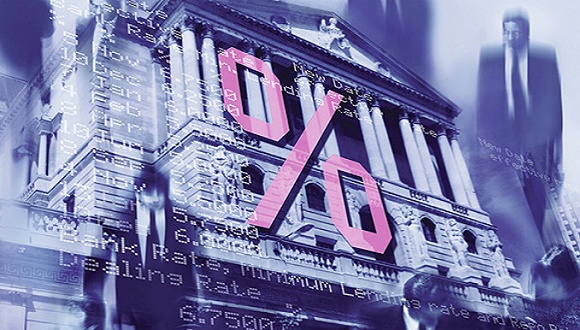Recently, foreign investment
banks also showed their positive attitude towards China’s economy. Convinced by
China’s macroeconomic statistics, foreign investment banks believe, for the
first time during a long period of time, that China’s economy is finding a more
solid basis.

According to the latest statistics released
by the National Bureau of Statistics, China’s economic growth in the first
quarter of this year was 6.7%, which was the lowest among the past 7 years.
However, there are also some positive signs showing that China’s economy, whose
slowdown and hard landing were severely concerned by the public, may has been
rebounding.
According to the statistics, both China’s
export and domestic demand have rebounded, and the recovery of real estate market
may stimulate construction and investment activities. Besides, industrial output
was up by 6.8%, the highest rate during these 9 months, which is far better
than what analysts have expected. The increase of the retail and fixed capital
investment in last month also exceeded expectations.
Recently, foreign investment banks also
showed their positive attitude towards China’s economy. Convinced by China’s
macroeconomic statistics, foreign investment banks believe, for the first time
during a long period of time, that China’s economy is finding a more solid
basis.
Wang Tao, the chief economist of the United
Bank of Switzerland (UBS) in China, has already increased China’s GDP growth
expectation to 6.9% from 6.2%.
According to the research report she
released a few days ago, economic activities have rebounded in March after a
period of slow-growth in the early of 2016. The economic growth rate of the
first quarter has stabilized, and we have seen the momentum that economic
growth rate would increased to 7.5% quarter on quarter, while the year-on-year
growth would keep on 6.7%.
According to Wang Tao, the growth of the
investment, including the fixed capital investment, may be faster than the
previous expectation, among which the actual year-on-year increase rate of the
fixed investment may keep on 6% rather than the obvious decline predicted
before. The slow decline and de-capacity process mean the downward pressures on
the employment and payment may be weaker than that of the previous expectation,
so does the expectation on the actual consumption growth rate. Although the export
has been weak, the net export still acts as a positive contributor to the GDP
growth.
Zhang Zhiwei, economist of Deutsche Bank,
has also raised China’s GDP growth rate of the second quarter from 6.8% to 7%.
According to the research report published
by Zhang Zhiwei last week, the major economic targets continue to rebound in
March, among which the real estate investment is expected a continuous increase
in the next months. He increased growth expectation on China’s GDP to 7.0% and
forecasted that China’s overall GDP of 2016 may increased by 6.7%. He also said
that during the rest of this year China would reduce the interest for only once
in the fourth quarter.
According to the report of the Deutsche
Bank, China may adjust its relatively loose monetary policy and fiscal policy
to neutral policies in the middle of the year since the statistics remain
positive. And China would prefer to place its emphasis on financial stability
when the positive economic signs emerge.
Zhu Haibin, the chief economist of JPMorgan
Chase in China, also pointed out his expectation in his latest report that China’s
economic growth would improve. He raised his forecast for the
quarter-on-quarter growth of the second quarter from 6.7% to 7.0%. He also slightly
raised forecast for the third and fourth quarter to 6.6% and 6.3%.
The previous forecast for growth rate of
China’s GDP for 2016 was 6.6%, and raising the forecast was mainly because the
macropolicies could take into effect over the next few months.
The report of JPMorgan Chase also pointed
out that on the whole China’s macropolicies have placed more emphasis on supporting
economic development. The financial policy would avoid the surprise contraction
like what happened last year, and the prudent monetary policy would also incline
to easing. Besides, there are also some policies supporting new industries and
real estate market.
Although the foreign banks are optimistic
to China’s economy all the time, China’s economy would face great pressure in
the next few years due to a series of unstable factors.
Sheng Laiyun, the news spokesman of the
National Bureau of Statistics, also said that although China’s economy had a
good start early this year, we should not be over-optimistic.
According to Wang Tao’s forecast, the
future economy development will face both upward and downward risks, among
which the upward risk includes a stronger rebound on the selling of real estate
due to the better emotion, significant credit expansion, and the downward
financial cost; while the downward risk includes the weak growth of the global
economic growth, the slowdown of the industrial department investing and the
early termination of the real estate rebound.
As for the economic situation in the next
year, according to the report of the UBS, the decision-making officials would
provide strong policy-support on economic development. However, the activity of
real estate industry may turn to be weaker than that of this year and the GDP
growth rate would slow down to 6.3%.
*This article is an edited and translated version by CCM. The original article comes from thepaper.cn.
About CCM:
CCM is the leading market intelligence provider for China’s
agriculture, chemicals, food & ingredients and life science markets.
Founded in 2001, CCM offers a range of data and content solutions, from price
and trade data to industry newsletters and customized market research reports.
Our clients include Monsanto, DuPont, Shell, Bayer, and Syngenta. CCM is a
brand of Kcomber Inc.
For more information about CCM, please visit www.cnchemicals.com or get in touch with us directly by emailing econtact@cnchemicals.com or calling +86-20-37616606.